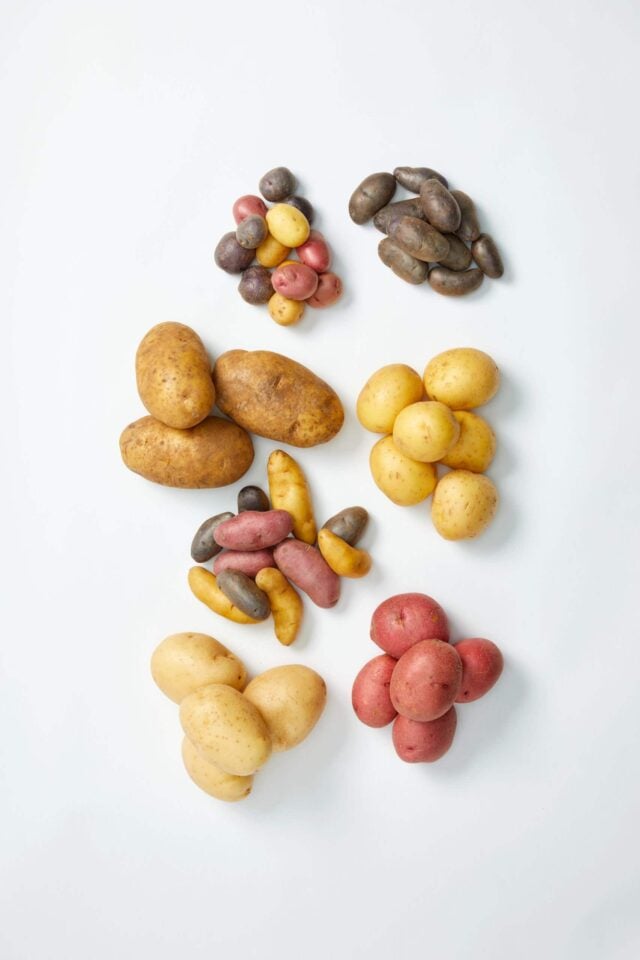Potatoes often get a bad reputation for being unhealthy, primarily because they’re associated with high-calorie, deep-fried dishes like French fries and potato chips. However, when prepared correctly, potatoes can be an incredibly healthy and nutritious food to include in a balanced diet. Rich in vitamins, minerals, and fiber, potatoes offer a range of health benefits that can support overall well-being. Many people wonder, ‘Are potatoes healthy?’ and the answer is yes, when prepared in a nutritious way, potatoes are packed with vitamins, minerals, fiber, and antioxidants that can support overall health. In this article, we’ll explore how to enjoy potatoes in a balanced diet and make the most of their nutritional value.
Nutritional Value Of Potatoes
First, it’s important to recognize that potatoes are more than just a starchy side dish. They are a great source of essential nutrients, including:
- Carbohydrates: Potatoes are primarily composed of carbohydrates, which are the body’s main source of energy. The carbs found in potatoes come in the form of starch, providing a slow and steady release of energy throughout the day.
- Fiber: Dietary fiber, which is abundant in potato skin, helps regulate blood sugar, improves digestive health, and can increase feelings of fullness, all of which may help with weight management.
- Vitamins And Minerals: Numerous vitamins and minerals, such as the following, are abundant in potatoes:
- Vitamin C: This antioxidant vitamin plays a key role in immune health, skin health, and wound healing.
- B Vitamins: B6 is found in potatoes and is essential for both red blood cell formation and cognitive function.
- Potassium: Potatoes are rich in potassium, a mineral that helps manage blood pressure, balance fluids, and support muscle function.
- Antioxidants: Potatoes contain various antioxidants, which help protect the body from oxidative stress and inflammation. These compounds may contribute to reduced risks of chronic conditions such as heart disease and cancer.
Preparing Potatoes For Health
The way potatoes are prepared greatly impacts their nutritional profile. While deep-frying potatoes in oil may add unhealthy fats and calories, there are many other methods of cooking that retain their health benefits. Here are some tips on preparing potatoes in a healthier way:
- Bake, Boil, Or Steam: These cooking methods preserve most of the potato’s nutrients and avoid the added fats and calories that come with frying. While maintaining their nutritional value, potatoes can have their natural flavor enhanced by baking them in the oven with a small amount of olive oil.
- Leave The Skin On: The skin of a potato is packed with fiber, vitamins, and minerals. By leaving the skin on when cooking, you can enhance the potato’s nutritional value. For example, baked potatoes with the skin provide more fiber and nutrients compared to peeled ones.
- Avoid Excessive Butter And Cream: While mashed potatoes made with heavy butter and cream can be indulgent, they can also add unnecessary calories and fat. Instead, try mashing potatoes with olive oil, garlic, and a bit of low-fat milk or Greek yogurt for a healthier version.
- Add Healthy Toppings: Instead of loading your potatoes with sour cream or cheese, consider healthier toppings like Greek yogurt, fresh herbs, or avocado. These add flavor without packing on the unhealthy fats.
How To Incorporate Potatoes Into A Balanced Diet
Potatoes can be enjoyed as part of a well-rounded meal, but it’s essential to balance them with other nutrient-dense foods. Here are some ideas on how to include potatoes in your daily meals while maintaining a healthy, balanced diet:
- As A Side Dish: Potatoes make a great side dish for lean proteins, such as grilled chicken or fish, and are an excellent accompaniment to a variety of vegetables. Roasted sweet potatoes, for example, pair beautifully with a colorful vegetable stir-fry for a satisfying, balanced plate.
- In Salads: Potato salads can be made lighter by using healthy ingredients like olive oil, vinegar, and mustard instead of mayonnaise. Combine boiled potatoes with fresh vegetables like cucumbers, onions, and bell peppers for a nutritious, filling salad.
- As A Base For Soups And Stews: Potatoes are a hearty base for many soups and stews. Adding them to dishes like vegetable soup, lentil stew, or chicken soup can increase the fiber content and provide a satisfying meal.
- In Breakfast Dishes: Potatoes can also be used in breakfast dishes. A delicious and healthy option is a potato and vegetable hash made with boiled potatoes, peppers, onions, and a sprinkle of cheese for flavor. Pair it with a poached or scrambled egg for added protein.
- Healthy Snacks: Instead of reaching for unhealthy processed snacks, try baking potato wedges at home. Season them with herbs and spices for a flavorful, low-calorie snack that satisfies your cravings for something crunchy.
Moderation Is Key
While potatoes are healthy, it’s important to remember that portion size matters. Like any food, eating potatoes in moderation is crucial. Pair them with a variety of other vegetables, lean proteins, and whole grains to ensure you’re getting a well-rounded mix of nutrients.
Conclusion
Potatoes can be a nutritious and healthy addition to your diet when prepared in a healthy way. With their rich content of vitamins, minerals, fiber, and antioxidants, they can contribute to a well-balanced and fulfilling meal. By choosing healthier cooking methods, adding nutritious toppings, and balancing potatoes with other wholesome foods, you can enjoy the many benefits this versatile vegetable has to offer without feeling guilty. Whether baked, boiled, or mashed, potatoes can be part of a delicious and nutritious diet that supports overall health and wellness.

